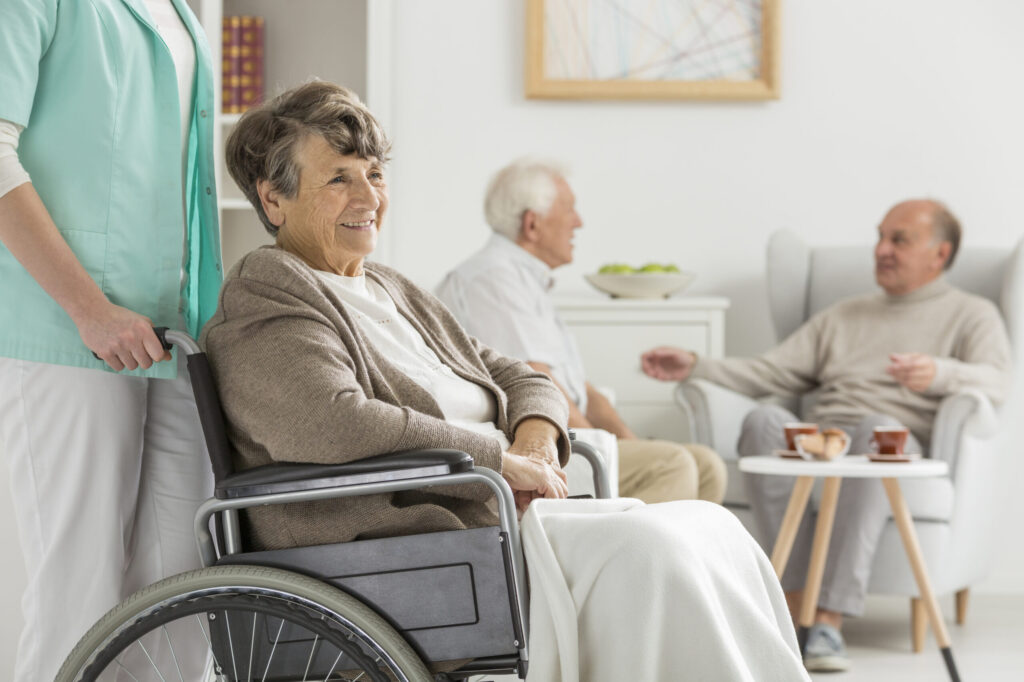Care for our elderly loved ones becomes a key priority as we want to assure their health, safety, and quality of life. Elderly individuals need more than just physical care; compassionate care also includes emotional support, social interaction, and respect for their uniqueness. In this thorough manual, we’ll go over all the different facets of caring for the elderly, from recognizing their particular challenges to fostering a kind and encouraging environment. Let’s set out on a path to provide thoughtful and compassionate care for our cherished seniors in order to honor and cherish them.
Acquiring an Understanding of the Specific Requirements of the Elderly

A variety of physical, emotional, and cognitive changes may occur as people age. To customize care, it’s crucial to discover and comprehend these particular demands. Mobility problems, ongoing medical disorders, memory loss, and loneliness or isolation are all common in the elderly. In order to deliver the total home care possible, caregivers and family members must pay close attention to these factors.
Promoting Independence and Autonomy:
While ensuring safety is paramount, promoting independence and autonomy in elderly individuals is equally vital. A sense of dignity and self-worth is promoted by encouraging them to participate in daily activities, make decisions, and keep up with their interests. Seniors’ overall well-being and confidence can be improved by using adaptive tools and assistive technology to perform tasks more comfortably.
Providing High-Quality Physical Care:
A key component of geriatric care is providing high-quality physical care. Their health must be maintained by ensuring sufficient nourishment, hydration, and medication administration. Chronic illnesses should be monitored and identified early on with the use of routine medical exams. Additionally, physical therapy and modest exercise regimens can increase mobility and enhance general wellbeing.
Taking Care of Your Mental and Emotional Health:

Elderly people’s mental and emotional health should not be disregarded. Social exclusion and loneliness can have a very negative effect on mental health. elders’ mental wellbeing can be enhanced by including them in meaningful social activities, family contacts, and support groups. These activities can help elders feel less lonely. Promoting mental wellness also involves encouraging seniors to communicate their emotions and showing sensitivity and understanding.
Making a Safe and Comfortable Living Space:
An elderly person’s comfort and safety greatly depend on their living space. Accidents and injuries can be avoided by making the home more suited to their needs, such as by adding handrails, ensuring adequate lighting, and removing trip hazards. A sensation of serenity and relaxation is encouraged by maintaining a tidy, orderly, and clutter-free living place.
The Role of Family Caregivers:
Family caregivers play an integral role in elderly people care. A balance between caregiving duties and self-care is necessary because caring for a loved one may be both gratifying and difficult. To avoid burnout and maintain their wellbeing, family carers must seek out support, take regular breaks, and interact with others who share similar caregiving responsibilities.
Services for Professional Senior Care:

For those who need more intensive care, professional senior care services might be a very beneficial option. Personal care, prescription administration, companionship, and specialized care for diseases like dementia or Alzheimer’s are just a few of the services provided by home care businesses. These services provide family caregivers a break while ensuring that the best care is given to their loved ones by qualified specialists.
Holistic Approach to Elderly People Care:
A holistic approach to elderly people care emphasizes the integration of physical, emotional, and mental well-being. A comprehensive care plan that addresses every element of seniors’ life is created by integrating medical treatment with leisure pursuits, intellectual stimulation, and social interaction.
Respecting Individuality and Life Experiences:
Every senior has had a different life path, filled with memories, preferences, and experiences that have shaped who they are. Elderly care must respect each person’s uniqueness and personal preferences. A sense of worth and dignity is fostered by taking the time to hear their stories, comprehend their values, and involve them in the decision-making process.
Compassionately Embracing End-of-Life Care:

Elderly people deserve compassionate end-of-life care that respects their wishes, offers solace, and offers support as life approaches its final stages. Seniors who receive hospice care or palliative care can pass their dying days peacefully and comfortably in the company of loved ones by focusing on reducing pain and preserving dignity.
Total Home Care For Elders
Elderly people care is a profoundly meaningful and rewarding journey. We can assist the wellbeing of our cherished elderly citizens by being aware of their particular requirements, encouraging independence, and offering them both physical and emotional care. Let us appreciate and celebrate our senior population with empathy, compassion, and love, ensuring that their golden years are spent with joy and dignity, whether via the selfless efforts of family caregivers or the support of professional care services.



